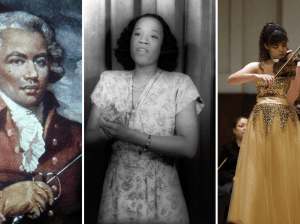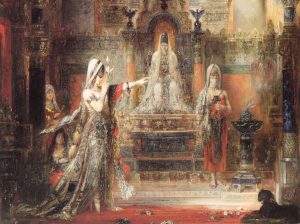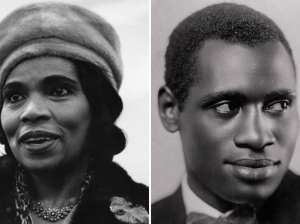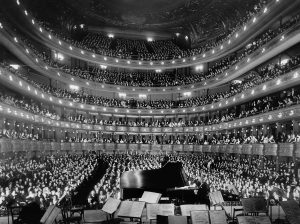
Jamie Barton is a current mezz …
Posted on by Eric Salazar

Jamie Barton is a current mezz …
Posted on by Eric Salazar

This Black History Month, we take a look at two dynamic musicians of African descent and a modern organization that is spearheading a more diverse future. Read below about the French composer who led the best orchestra in Paris, the American opera star who stunned audiences with her voice, and an organization that is creating positive change on a national scale.

It’s not fake news, it’s very real. This Month in Classical Music History is a series dedicated to finding stories of the good, the bad, and the downright weird. In this article, read about a Beethoven historian who blatantly made things up, the NY Phil’s Young People’s Concerts under Leonard Bernstein, and a scandalous dance scene from an opera that was so seductive, all subsequent performances were cancelled.

For the New Year we thought we’d ask our staff and Music Unites Artists to share their New Year’s Resolutions. A new year is always a good time to take a fresh look at life, what are you hoping to accomplish in 2018?

Part of Classical Music Indy’s ongoing work is to highlight diversity in the classical music world, and explore the unique voices and perspectives of multicultural musicians and audiences. In recognition of Black History Month, Classical Music Indy honors two of the Black musicians who made history by gracing concert stages and bringing unique cultural experiences to the music they performed.

Concert etiquette has always been a mystery to classical newcomers. People wonder when they are allowed to clap, how much noise they should or shouldn’t make, and whether or not they are allowed to get out of their seat during the performance. There is an ongoing debate about concert etiquette–to shush or not to shush. This week, we looked at a few examples of performers shushing from the stage.
We are always grateful for your support of our work on-air as well as our community programs, advocacy, and promotions. Our funding comes from program underwriters, foundations, state and city government, board members, and from individuals who value classical music as part of a diverse cultural landscape.
